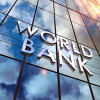Avoid middle-income trap at all costs

Bangladesh should be careful about falling into the middle-income trap, said Axel van Trotsenburg, the World Bank's managing director of operations.
"Middle-income status is a hard struggle and in fact, it is a difficult task to go to the higher-income status," he said, citing the case of Argentina and Greece, which fell into the trap.
Some Latin American countries went the reverse direction after reaching the middle-income status, van Trotsenburg said in an event to mark 50 years of partnership between Bangladesh and the World Bank.
From this perspective, Bangladesh needs to look at how countries like Korea and Singapore succeeded in levelling up to the higher income bracket.
He liked the country's vision to double its per capita income by 2031 and in this way become an upper middle-income country.
But the country needs to continue with its reforms to strengthen its institutions so that they can serve the needs of a higher-income economy.
"We will support Bangladesh as it navigates through challenging and uncertain economic times brought on by the COVID-19 pandemic, the war in Ukraine and the heightened climate challenges," he said.
Bangladesh can achieve long-term growth by strengthening reforms in the areas of macro-fiscal management, export diversification, financial sector, energy and climate resilience.
Higher and sustained levels of infrastructure investment, digitalisation and especially human capital will be a sine qua non for higher growth.
A vibrant private sector and export diversification will be central for staying on the course of a strong growth path, the Dutch-Austrian national said.
For this, rationalising the tariff system to reduce the nominal protection rate, removing non-tariff barriers and liberalising trade in services will be critically important.
To safeguard the country's successful development outcomes and support sustained growth and poverty reduction, it is important that the country maintains stable macroeconomic conditions underpinned by sound macroeconomic-fiscal management.
"There should be no compromise in improving education as this is the key to improving human capital. Primary and secondary education needs long-term investment so that a child can get proper guidelines from a very early stage."
Asked about the country's macroeconomic challenges, he said the WB recently slashed the global growth projection from 3 percent to 1.7 percent, which is the lowest growth projection in three decades.
The commodity prices, disruption in the supply chain and international food prices are challenges for all countries.
At the event, Finance Minister AHM Mustafa Kamal said Bangladesh is the 35th largest economy now and the country's per capita income is also rising thanks to contributions from development partners like the WB.
"We want more contributions from them," he added.
While Bangladesh's infrastructure has developed markedly in the last few years, more needs to be done to get the desired GDP growth, said Sharifa Khan, the economic relations division secretary.
"The development partners can do more here."
In recent times, the country's foreign exchange reserves are fast depleting and the cost of borrowing is rising as the interest rate has gone up, she said.
"But we are not solely responsible for this situation, so budget support can play a vital role in this regard," Khan added.
The Washington-based multilateral lender is committed to working with the government in the upcoming months, said Martin Raiser, the WB's vice-president for the South Asia region.
The present economic situation of Bangladesh is mainly due to the global situation, so the government has already taken steps in the situation, said Ahmad Kaikaus, the WB's alternate executive director.
The government ordered to bring down the demand, so that foreign exchange dependency is reduced.
Another order is not to keep any land unfarmed, he said in a panel discussion on 'Celebrating Success: Exploring Possibilities".
In the present supply chain disruption, Bangladesh is trying to improve connectivity with development partners and bilateral relationships, said Kaikaus, who is also the former principal secretary of Bangladesh.
Bangladesh is going through macroeconomic challenges and it needs to take some steps to overcome these, said Ahsan H Mansur, executive director of the Policy Research Institute.
It needs to make the interest rate and foreign exchange rate market-based, increased the tax-to-GDP ratio and restore good governance in the banking sector, he added.
The government should reduce the cost of doing business and increase competitiveness in the country so that the private sector can play a bigger role in the economy, said Nihad Kabir, a former president of the Metropolitan Chamber of Commerce and Industry.
She suggested giving more focus on skills, training and human capital.
Abdoulaye Seck, the WB's country director for Bangladesh and Bhutan, and Junaid Kamal Ahmad, vice-president for operations of the Multilateral Investment Guarantee Agency (MIGA), also spoke at the event.

 For all latest news, follow The Daily Star's Google News channel.
For all latest news, follow The Daily Star's Google News channel. 









Comments